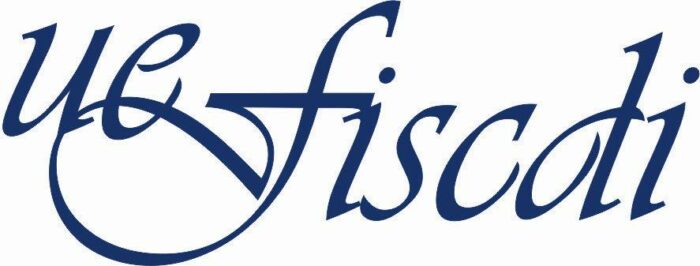The Cartesian Framework
Research ProgramsModels of Producing and Disseminating Knowledge in Early Modern Europe: The Cartesian Framework
Models of Producing and Disseminating Knowledge in Early Modern Europe: The Cartesian Framework

Grantee of the Ideas Program launched by UEFISCDI, the project aimed at supporting and promoting fundamental, interdisciplinary and/or exploratory scientific research in Romania.
Grant: PN-II-ID-PCE-2011-3-0998
Contract: 346/2011-10-27
Timeframe:
1 January 2012 – 31 December 2014
Team:
Project Leader:
Vlad ALEXANDRESCU, PhD, Associate Professor, University of Bucharest, French Studies Department; Director of the Research Centre Foundations of Early Modern Thought, University of Bucharest
Researchers:
Călin Cristian POP, PhD, Researcher, Editorial Secretary, Verso Cultural Review, Cluj
Grigore VIDA, PhD, Research Assistant, Member of the Research Centre Foundations of Early Modern Thought, University of Bucharest
Robert Adrian ARNĂUTU, PhD, Research Assistant, Member of the Academic Society for the Research of Religion and Ideologies (SACRI), Cluj-Napoca
Cristian MOISUC, PhD, Researcher, Faculty of Philosophy and Social Sciences, Alexandru Ioan Cuza University, Iași
Robert LAZU, PhD in Philosophy, West University, Timișoara
Claudiu GAIU, PhD
Ilinca BĂLAȘ, PhD
Mihai-Dragoș VADANA, Researcher, PhD Candidate in Philosophy, University of Bucharest
Website:
descartesfme.wordpress.com
The project aims to conduct a research from an interdisciplinary standpoint on Descartes correspondence, which constitutes a true fountain of theories, ideas and representations, one of the milestones of the intellectual networking of the early modernity. Descartes’ correspondence is first of all a privileged spot of an interdisciplinary study of the way of functioning of the Republic of Letters, in a period when all the instruments, techniques and communication protocols of the early modernity were already in use.
In the last period, the sources of awareness and research in Descartes correspondence were considerably augmented. Considered as the bible of Cartesian studies, the historical edition elaborated by Charles Adam and Paul Tannery, Œuvres de Descartes, Paris, Léopold Cerf, 1897-1913 (AT), is now obsolete. The research center directed by Prof. Giulia Belgioioso (Lecce), regrouping some brilliant researchers as Igor Agostini, Massimiliano Savini, Francesco Marrone, Franco A. Meschini, edited after several years of research a bilingual integral edition of Descartes correspondence. They revealed several aspects remained unknown, as well in the philological plan as in the historical one (René Descartes, Tutte le Lettere 1619-1650, testo francese, latino e nederlandese, nuova edizione ampliata, riveduta e corretta, a cura di Giulia Belgioioso, con la collaborazione di Igor Agostini, Francesco Marrone, Franco A. Meschini, Massimiliano Savini e di Jean-Robert Armogathe, Milano, Bompiani, 2005). A competing project is developped at Utrecht University, under the supervision of prof. Theo Verbeek and Erik-Jan Bos. They started work on a similar project, on different basis. The two volumes published till now, Erik-Jan Bos, The Correspondence between Descartes and Henricus Regius (Utrecht, Zeno, 2002) and Theo Verbeek, Erik-Jan Bos, J. Jeroen Van de Ven, The Correspondance of Descartes: 1643 (Utrecht, Zeno, 2003), announce a complete renewal of Cartesian studies, due to the richness of historical, scientific and philosophical contextualization of the enterprise. Recently, Roger Ariew (University of South Florida) and Erik-Jan Bos have been awarded a large grant by the US National Endowment for the Humanities that will enable them, Theo Verbeek, and others, to complete their new edition of Descartes’ correspondence with an English translation.
Descartes’ Correspondence offers to the researcher a fascinating field of knowledge, because it facilitates an investigation conducted with interdisciplinary methods of an encounter territory of different and diverse paradigms –philosophical, scientific and political ones, communicating with one another in the process of making of European modernity. Descartes’ philosophical plan, launched in distinct moments trough his major works (Discours de la méthode, 1637; Meditationes de prima philosophia, 1641; Principia philosophiae, 1644; Traité des passions de l’âme, 1649) was tested each time by an exchange of letters with his contemporaries, which submitted his work to multiple tests of validation in the Republic of Letters, starting from philosophical and scientific competing models. The most known dossier is built around the Objections and Responses to Metaphysical Meditations, gathering well-known thinkers of the time, as Gassendi, Mersenne, and Hobbes. There are other dossiers too, as interesting as the first one, and stimulating rich scientific and philosophical exchange of ideas, sometimes through the cultural facilitators, constituting their own intellectual network, more and more studied in the last years (for example, Samuel Sorbière, a Huguenot agent of Pierre Gassendi, infiltrated in the Cartesian circles in the years 1643-1647). Descartes’ philosophical correspondence with Princess Elisabeth bears upon the relations between natural philosophy, moral philosophy and metaphysics, announcing the later developments of Cartesian metaphysics and ethics.